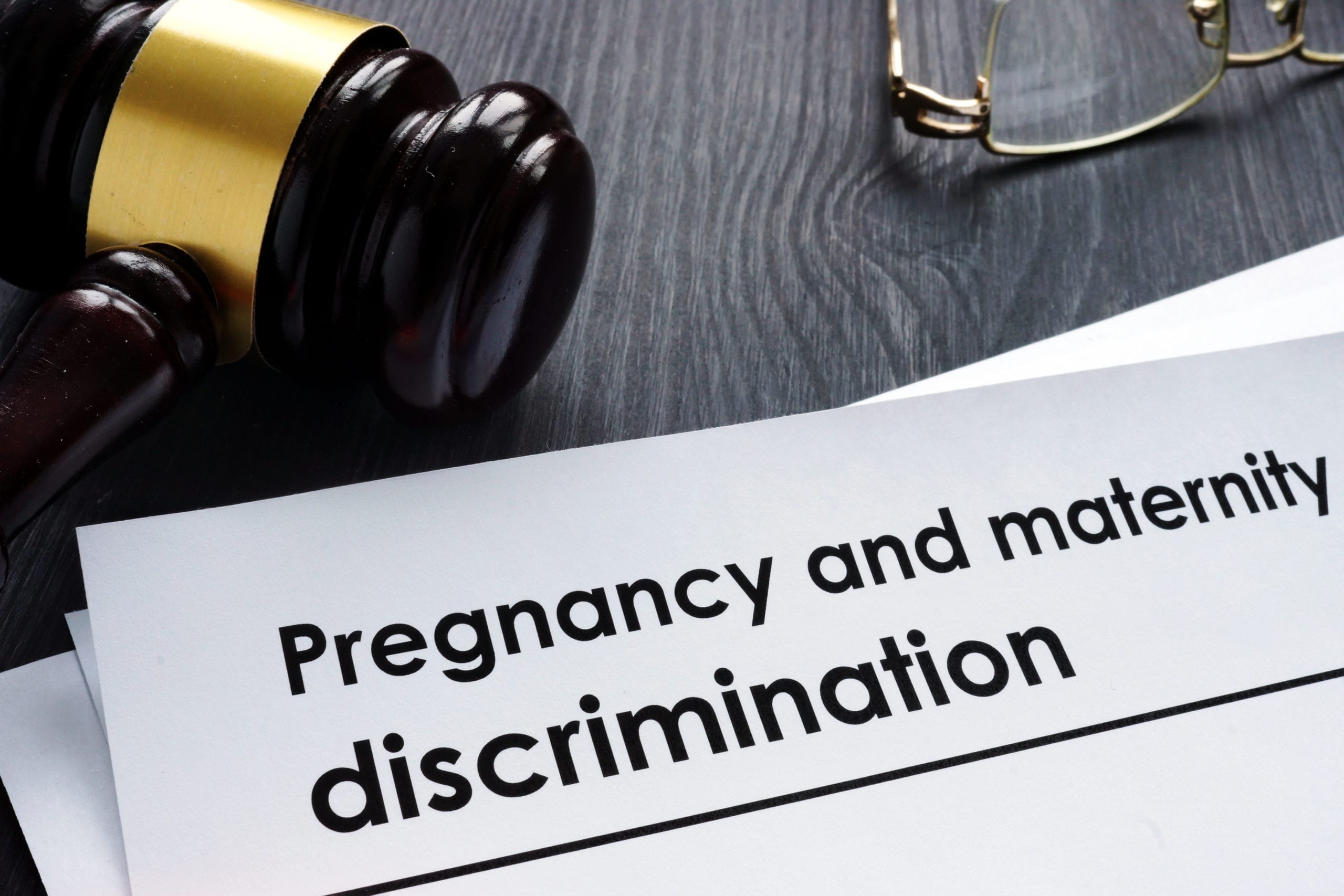Brian J Graber LLC, represents employees in pregnancy accommodation claims in the State of Illinois. The Illinois Human Rights Act (IHRA) and Title VII of the Civil Rights Act of 1964, (Title VII), 42 U.S.C. §2000e(k) prohibit pregnancy discrimination. However, the IHRA provides broader protections in pregnancy discrimination accommodation claims than Title VII.
IHRA Pregnancy Accommodations

Effective on January 1, 2015, the IHRA was amended to include 775 ILCS 5/2-102(J) “pregnancy reasonable accommodations.” 775 ILCS 5/2-102(J) imposes liability on an employer who refuses an employee’s request for a “reasonable” accommodation, unless the employer can prove the accommodation would impose an undue hardship. The pregnancy accommodation discrimination provisions apply to any person employing one or more employees in Illinois.
Under §2-102(J) the employer may request medical documentation from the employee’s health provider concerning the need for the reasonable accommodation. The employee has the obligation provide the medical documentation allowed by the statute.
§2-102(J) describes “reasonable accommodations” as including but not limited to the following:
- Modifications or adjustments to the job application process or work environment;
- More frequent or longer bathroom breaks;
- Breaks for increased water intake;
- Breaks for periodic rest;
- Private non-bathroom space for expressing great milk and breastfeeding;
- Seating;
- Assistance with manual labor;
- Light duty;
- Temporary transfer to a less strenuous or part-time or modified work schedule;
- Appropriate adjustment or modifications of examinations, training materials, or policies;
- Reassignment to a vacant position;
- Time off to recover from conditions related to childbirth; and
- Leave necessitated by pregnancy, childbirth, or medical or common conditions resulting from pregnancy or childbirth.
The IHRA obligates the employer to provide a reasonable accommodation, unless the employer can prove the accommodation is an undue hardship. The burden of proof is on the employer to prove a reasonable accommodation is an undue hardship.
Retaliation for Requesting an Accommodation
The IHRA, 775 ILCS 5/6-101(A) makes it unlawful for any person to retaliate against any person who requests, attempts to request, uses, or attempts to use a reasonable accommodation under this Act. This broad protection allows an employee suffering retaliation to bring claims against her employer and the management employee that engages in the retaliation for exercising a request for an accommodation.
Title VII Pregnancy Accommodation Claims
Title VII’s pregnancy accommodation discrimination provision does not provide the broader protections similar to the IHRA. Title VII ‘s second clause at 42 U.S.C. §2000e(k) states:
. . . women affected by pregnancy, childbirth, or related medical conditions shall be treated the same for all employment-related purposes . . . as other persons not so affected but similar in their ability or in ability to work. . . .
In Young v. UPS, Inc., 575 U.S. 206, 210 (2015), the Supreme Court held Title VII’s second clause requires courts to consider the extent to which an employer’s policy treats pregnant worker’s less favorably than it treats non-pregnant worker’s similar in their ability or inability to work. UPS employed Ms. Young as a driver. UPS refused to accommodate Ms. Young’s lifting restrictions during her pregnancy. UPS accommodated non-pregnant drivers who became disabled on the job, drivers who lost their DOT certificates, and drivers who suffered a disability covered by the ADA. Ms Young asked for an accommodation for her pregnancy lifting restrictions. UPS refused to grant Ms. Young similar accommodations for her pregnancy. Ms. Young filed suit against UPS for pregnancy accommodation discrimination.
In Young, 575 U.S. at 229 the Supreme Court requires an employee claiming a denial of an accommodation for pregnancy prove a prima facie case by showing the following elements:
- She belongs to the protected class;
- She sought an accommodation for her pregnancy;
- The employer refused to accommodate her; and
- The employer did accommodate others “similar in their inability to work.”
Unlike the IHRA, Title VII does not require an employer to provide employees reasonable pregnancy accommodations. Therefore, in any pregnancy accommodation discrimination claims should be filed under the IHRA because of the broader protections.
Statute of Limitations
Pregnancy accommodation claims must be dual filed with the Equal Employment Opportunities Commission (Title VII claims) and the Illinois Department of Human Rights (IHRA claims) within 300 calendar days after the date that a civil rights violation has been committed. The Illinois Department of Human Rights Charge filing process can be found here https://www2.illinois.gov/dhr/FilingaCharge/Pages/Intake.aspx
Brian J Graber LLC, prepares and dual files Charges for pregnancy accommodation claims with the EEOC and IDHR for our clients who retain our services. If you would like to learn more about your right to be free from pregnancy discrimination and retaliation for seeking a reasonable accommodation, contact Brian J Graber LLC, at (312) 291-4648 for a free consultation.

 Wrongful Discharge Workplace Violence
Wrongful Discharge Workplace Violence